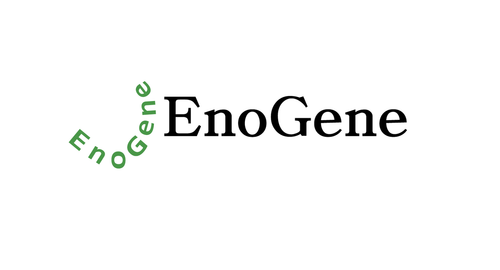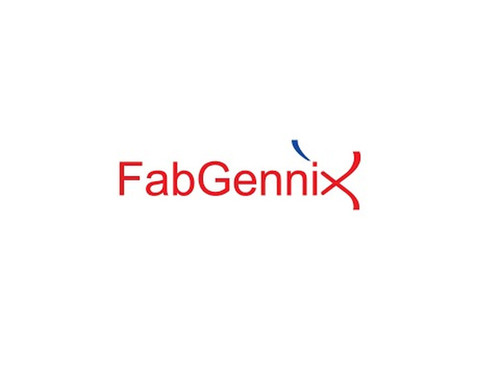Product Description
SRPK1 Antibody (C-term) [APR32488G] | Leading Biology
Product Category: Polyclonal Antibodies
Host: Rabbit
Species Reactivity: H
Specificity: This SRPK1 antibody is generated from rabbits immunized with a KLH conjugated synthetic peptide between 538-567 amino acids from the C-terminal region of human SRPK1.
Cellular Localisation: [Isoform 2]: Cytoplasm. Nucleus. Nucleus matrix. Microsome. Note=Shuttles between the nucleus and the cytoplasm Inhibition of the Hsp90 ATPase activity, osmotic stress and interaction with HHV-1 ICP27 protein can induce its translocation to the nucleus KAT5/TIP60 inhibits its nuclear translocation Cytoplasm. Nucleus, nucleoplasm. Nucleus speckle. Chromosome. Note=Preferentially localizes to the promoter of gene coding regions.
Molecular Weight: 74325
Clone: Polyclonal
Gene Name: SRPK1 {ECO:0000312|EMBL:CAC39299.1}
Gene ID: 6732
Function: Serine/arginine-rich protein-specific kinase which specifically phosphorylates its substrates at serine residues located in regions rich in arginine/serine dipeptides, known as RS domains and is involved in the phosphorylation of SR splicing factors and the regulation of splicing. Plays a central role in the regulatory network for splicing, controlling the intranuclear distribution of splicing factors in interphase cells and the reorganization of nuclear speckles during mitosis. Can influence additional steps of mRNA maturation, as well as other cellular activities, such as chromatin reorganization in somatic and sperm cells and cell cycle progression. Isoform 2 phosphorylates SFRS2, ZRSR2, LBR and PRM1. Isoform 2 phosphorylates SRSF1 using a directional (C-terminal to N-terminal) and a dual-track mechanism incorporating both processive phosphorylation (in which the kinase stays attached to the substrate after each round of phosphorylation) and distributive phosphorylation steps (in which the kinase and substrate dissociate after each phosphorylation event) . The RS domain of SRSF1 binds first to a docking groove in the large lobe of the kinase domain of SRPK1. This induces certain structural changes in SRPK1 and/or RRM2 domain of SRSF1, allowing RRM2 to bind the kinase and initiate phosphorylation. The cycles continue for several phosphorylation steps in a processive manner (steps 1-8) until the last few phosphorylation steps (approximately steps 9-12) . During that time, a mechanical stress induces the unfolding of the beta-4 motif in RRM2, which then docks at the docking groove of SRPK1. This also signals RRM2 to begin to dissociate, which facilitates SRSF1 dissociation after phosphorylation is completed. Isoform 2 can mediate hepatitis B virus (HBV) core protein phosphorylation. It plays a negative role in the regulation of HBV replication through a mechanism not involving the phosphorylation of the core protein but by reducing the packaging efficiency of the pregenomic RNA (pgRNA) without affecting the formation of the viral core particles. Isoform 1 and isoform 2 can induce splicing of exon 10 in MAPT/TAU. The ratio of isoform 1/isoform 2 plays a decisive role in determining cell fate in K-562 leukaemic cell line: isoform 2 favors proliferation where as isoform 1 favors differentiation.
Summary: Tissue Location: Isoform 2 is predominantly expressed in the testis but is also present at lower levels in heart, ovary, small intestine, liver, kidney, pancreas and skeletal muscle. Isoform 1 is only seen in the testis, at lower levels than isoform 2. Highly expressed in different erythroid and lymphoid cell lines, with isoform 2 being far more abundant than isoform 1.
Form: Purified polyclonal antibody supplied in PBS with 0.09% (W/V) sodium azide. This antibody is purified through a protein G column, eluted with high and low pH buffers and neutralized immediately, followed by dialysis against PBS.
Storage: Maintain refrigerated at 2-8°C for up to 2 weeks. For long term storage store at -20°C in small aliquots to prevent freeze-thaw cycles.
Application: FC, WB
Dilution: WB--1:1000
Synonyms: SRSF protein kinase 1, SFRS protein kinase 1, Serine/arginine-rich protein-specific kinase 1, SR-protein-specific kinase 1, SRPK1 {ECO:0000312|EMBL:CAC392991}
 Euro
Euro
 USD
USD
 British Pound
British Pound
 NULL
NULL

![SRPK1 Antibody (C-term) [APR32488G] SRPK1 Antibody (C-term) [APR32488G]](https://cdn11.bigcommerce.com/s-452hpg8iuh/images/stencil/1280x1280/products/872733/1164800/logo__92149.1659788186__49268.1659868776.png?c=2)
![SRPK1 Antibody (C-term) [APR32488G] SRPK1 Antibody (C-term) [APR32488G]](https://cdn11.bigcommerce.com/s-452hpg8iuh/images/stencil/100x100/products/872733/1164800/logo__92149.1659788186__49268.1659868776.png?c=2)
![SRPK1 Antibody (C-term) [APR32488G] SRPK1 Antibody (C-term) [APR32488G]](https://cdn11.bigcommerce.com/s-452hpg8iuh/images/stencil/500x659/products/872733/1164800/logo__92149.1659788186__49268.1659868776.png?c=2)

![SRPK1 Antibody (N-term) [APR32461G] SRPK1 Antibody (N-term) [APR32461G]](https://cdn11.bigcommerce.com/s-452hpg8iuh/images/stencil/500x659/products/872706/1164773/logo__92149.1659788186__79503.1659868765.png?c=2)
![SRPK1 Antibody (N-term) [APR32367G] SRPK1 Antibody (N-term) [APR32367G]](https://cdn11.bigcommerce.com/s-452hpg8iuh/images/stencil/500x659/products/872612/1164679/logo__92149.1659788186__46059.1659868727.png?c=2)

